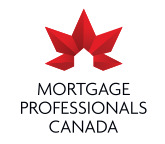With the right skillset, a career as a mortgage broker may be ideal for you. Here is a guide to a career as a mortgage broker in Canada

If you possess a certain skillset—and you are interested in helping people become homeowners—starting a career as a mortgage broker might be the right choice for you. Mortgage brokers help clients find the best home loan for them, based on their present financial situation and their credit history.
But what skillset do you need? What training do you need? And how much money do you make and what are the other advantages?
If you are interested in becoming a mortgage broker, it is important to understand a mortgage broker’s duties so that you can make an informed decision. Here is everything you need to know about a career as a mortgage broker in Canada.
What does a mortgage broker do?
A career as a mortgage broker means that you are helpful to clients during the home buying process. This usually means, first and foremost, that you help buyers get the financing that they need to purchase a property.

If you want to enter a career as a mortgage broker, you will have to know the answer to the question, what do mortgage brokers do? Here is a list of the tasks common to most mortgage brokers, consider them a checklist of tasks you must check off one-by-one to get to the point where you’re ready for your mortgage broking career:
- Understand mortgage options
- Help clients get mortgage approval
- Determine loan terms
- Guide clients after closing
- Maintain customer documents
- Perform administrative duties
- Manage employees
- Motivate the team
- Operate and maintain an office environment
- Spread the word
Here is a closer look at each of the tasks you can expect in a career as a mortgage broker in Canada:
1. Understand mortgage options
As a mortgage broker, you will understand the different mortgage options available, as well as the benefits and challenges of each. Mortgage brokers assess the financial circumstances of their clients and determine the most favourable rates based on that financial information. Know the different mortgage options and their client’s financial standing helps brokers secure loans that best suit their client’s needs.
2. Help clients get mortgage approval
After you have helped your client decide on the best possible mortgage for them, you will then have to get the mortgage approved. This step in the process includes negotiating with mortgage lenders, submitting applications, and following up on the home loan. To achieve this, you will have to be up to date with the latest mortgage regulations.
3. Determine loan terms
To ensure compliance with federal laws surrounding lending practices, is important to know about the home loan products available and the financial institutions that that offer them. More than that, it is crucial to understand what types of home loans work best for different types of property. Because provincial laws vary in Canada, mortgage brokers are responsible for knowing what is legal and relevant to each region.
4. Guide clients after closing
After your client has taken ownership of their new home, you will have to advise them on the next steps to take, post-closing. This step in the process ensures homebuyers do not overlook any requirements and that the actual purchase of the property goes smoothly. You may, for instance, have to help with documentation the buyer gives to the lender, or advise the buyer on how to proceed if there are issues with the new home.
5. Maintain customer documents
This aspect of being a mortgage broker means that you must be up-to-date and highly organized. You will likely be in the position to remind clients about any upcoming deadlines such as insurance payments or property taxes and tell your clients about the potential consequences of missing deadlines. You may also have to provide copies of certain documents to your clients upon request.
6. Perform administrative duties
Not every aspect of becoming a mortgage broker involves working with prospective home buyers. You may also be required to multi-task and handle administrative duties like answering phones, updating sales records, filing, and scheduling appointments. The duties may vary depending on the services offered by the brokerage.
7. Manage employees
Depending on your seniority level, you may have to supervise support staff like sales executives and administrative assistants. Mortgage brokers may, for instance, have to train employees and oversee their work. This part of the job may vary depending on the brokerage you work for.
8. Motivate the team
Mortgage brokers are often required to motivate a team, which includes leading training, performance reviews, and mentoring. Like a few tasks on this list, this one will depend on which organization you work for. Some brokerages, for instance, offer formal programs. Others require brokers to be self-motivated and operate more independently.
9. Operate and maintain an office environment
A lot of the work that mortgage brokers do takes place in their office, workspace, or remotely, from home. Because most workspaces include office equipment and technology, knowledge in these areas is important so that you remain informed and up to date on the most recent mortgage policies.
10. Spread the word
Successful mortgage brokers are often good at working with the media to inform the public about what is happening in the housing market. To this end, a mortgage broker will prepare press releases and speak to the media about various real estate-related topics. Not only is this type of exposure good for mortgage brokers, but it can also help you build a brand—and attract more clients.
How to become a mortgage broker
If you want to become a mortgage broker, there are at least eight steps that you have to take, some optional. Before we start, it is important to understand that licensing requirements may vary by province; however, regulations are similar across many areas. Therefore, it is best to do the research to determine the licensing requirements and the regulations in your region.
Here are the different steps to starting career as a mortgage broker in Canada:
- Education
- Employment
- Licensing/registration
- Start working
- Accreditation (optional)
- Upgrade licencing/registration (optional)
- Expand (optional)
- Share knowledge (optional)
Here is a closer look at each of the steps to becoming a mortgage broker:
1. Education
If you want to become a mortgage broker, you will first need to complete the entry-level educational requirements in your province. Since these requirements differ between provinces, it is important to do the research for your specific region. The different terminology in each province that refers to mortgage brokering professionals includes agent, associate, salesperson, and submortgage broker.
2. Employment
After fulfilling the educational requirements specific to your province, you will want to find a company or brokerage that best suits your needs. Before committing, it is important to ask questions about training, support, work style, and long-term professional goals.
3. Licensing/registration
Your company or brokerage will help you with the licensing/registration part of the process. After finishing the application forms, and getting licensed/registered, you will be able to start your new career as a mortgage broker.
4. Start working
There are a few different steps that can help get you started in your new role. These steps may include the following:
- Build your brand, meaning you can begin advertising, networking, building referral sources, and providing solid mortgage advice to your clients;
- Remain up to date with the products offered by lenders, as well as the different policies, to ensure that you comply with regulatory requirements; and
- Continue learning by accessing education opportunities and attending industry events.
5. Accreditation (optional) 
You can differentiate yourself by earning an industry-specific professional designation. One option here is to become an Accredited Mortgage Professional of Canada, or AMPC.
6. Upgrade licencing/registration (optional)
You can also upgrade your licensing/registration by following certain requirements, such as:
- Accruing two years’ (min.) experience as a licensed/registered mortgage professional
- Finishing the senior- or broker-level educational requirements
- Upgrading your licensing/registration status
Because each province has its own requirements, you can research license/registration upgrades here.
7. Expand (optional)
If you want to expand your brand and offerings, you can have a few options, including:
- Hiring an assistant
- Building and managing a team
- Starting your own mortgage brokerage
8. Share knowledge (optional)
Sharing your professional knowledge will not only improve the mortgage profession but it may benefit you in creating new opportunities and network, as well. To give back, you can do any of the following:
- Become a team leader
- Mentor new mortgage professionals
- Present at education sessions or industry events
- Join a committee in the mortgage industry
Starting a mortgage broker career FAQs
Is mortgage broker a good side job?
Yes. Because you essentially set your own schedule, you can make being a mortgage broker a good side job. If you become a mortgage broker, you will be able to make money in your free time, which is an ideal way to make extra cash to pay for your bills or free up money for your savings. Before committing to a career as a mortgage broker, it is also good to know the best jobs for mortgage brokers in Canada.
Is a mortgage broker in demand?
In short—yes, the profession of mortgage broker is in demand. Because the housing market is almost always growing or evolving, there is a steady demand for mortgage brokers. Not only that, but the commission most brokers earn from every mortgage deal can be substantial, meaning you have the potential to earn a high income.
How much money do mortgage brokers make in Canada?
In Canada, mortgage brokers work on commission, which means a broker is only paid when they help clients get a mortgage. The average commission for a mortgage broker is between 0.5%-1.2% of the total amount of the mortgage secured. To help bring down the mortgage rate, brokers can offer part of their commission.
Do mortgage brokers do a lot of math?
Yes. Because mortgage brokers work with numbers all day, it is important that they have good math skills, which includes calculating payments, interest rates, and other financial information. In other words, if you can work with numbers quickly and correctly, you will be more efficient in your role as a mortgage broker.
As we have seen, becoming a mortgage broker is no small feat. However, if you have the right skillset—and, perhaps more importantly, you are interested in helping others realize their dream of homeownership—this may be the career for you. Before you pursue your own goal, it is important that conduct your own research, especially when determining the licensing and registration requirements specific to your region. You will also want to read our Special Report on the best Canadian mortgage companies to work for in the industry.
Have experience in a career as a mortgage broker in Canada? Let us know in the comment section below what you did to reach your goal.



